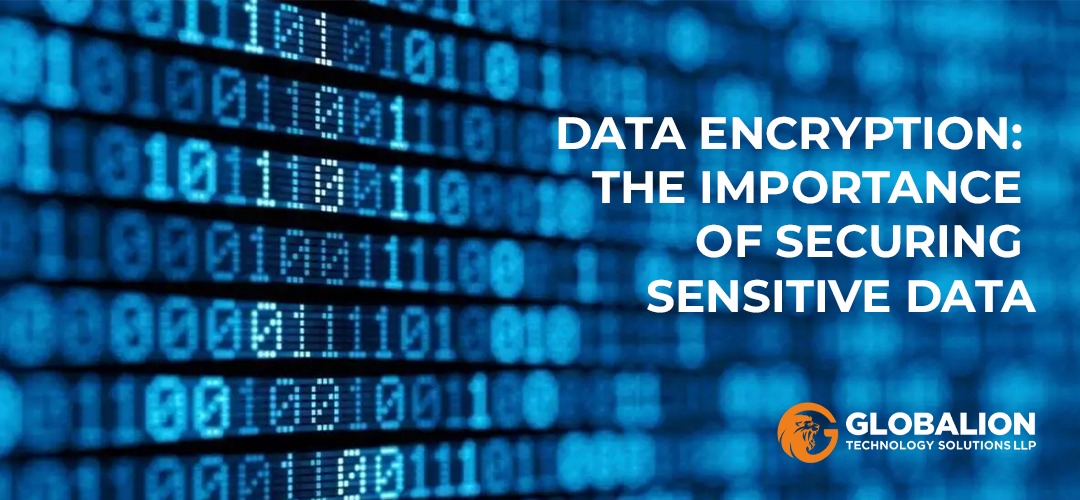Data Encryption: The Importance of Securing Sensitive Data
Data is now the lifeblood of contemporary businesses and organisations. As we continue to generate, store, and transmit vast amounts of sensitive information, the need for robust data protection measures has never been more critical. The most effective way to safeguard sensitive data is data encryption. Let’s explore the importance of data encryption and data protection and why it is essential for securing sensitive information in the digital world.
What is Data Encryption?
Data encryption is the process of converting plain text data into an unreadable format, known as ciphertext, using a specific algorithm and encryption key. This process ensures only authorised users with the right decryption key get access and can read the encrypted data. There are two types of encryption: symmetric encryption - which uses a single key for encryption and decryption, and asymmetric encryption, which uses different keys for each process. Even if a hacker manages to intercept encrypted data, without the decryption key, the information will be nothing more than a jumble of characters, rendering it useless to them.
Encryption serves as a powerful defence mechanism that protects data confidentiality and integrity, ensuring that even if a breach occurs, the stolen information remains inaccessible and unusable to unauthorised individuals.

The Importance of Data Encryption
Protecting ConfidentialityOne of the primary reasons for encrypting sensitive data is to maintain its confidentiality. By encrypting data, organisations can ensure that only authorised individuals can access it. This is particularly important for businesses dealing with sensitive customer information, financial data, or intellectual property. Unauthorised access to such information can lead to severe consequences, including financial loss, reputational damage, and even legal penalties.
Compliance with RegulationsVarious industry regulations and data protection laws require businesses to implement adequate security measures to protect sensitive data. Encryption is often a crucial component of compliance with these regulations, as it helps ensure the confidentiality and integrity of sensitive information.
Preventing Data BreachesData breaches are an unfortunate reality in today's digital landscape. Cybercriminals constantly look for different ways to exploit vulnerabilities and gain unauthorised access to sensitive data. By encrypting data, organisations can significantly reduce the risk of data breaches, as encrypted data is useless to attackers without the decryption key. Even if a breach occurs, encrypted data remains secure and unreadable, minimising the potential damage and fallout.
 Ensuring Data Integrity
Ensuring Data Integrity
Data integrity is the data's accuracy and consistency over its entire lifecycle. Encryption is vital in maintaining data integrityby ensuring that unauthorised users cannot tamper with or modify the data. Encrypted data can only be altered by someone with the appropriate decryption key, making it much more challenging for malicious actors to manipulate or corrupt the information.
Facilitating Secure CommunicationIn an increasingly connected world, secure communication is essential for businesses and individuals alike. Data encryption enables secure communication by encrypting data before transmitting it over networks or the internet. This ensures that even if the data is intercepted, unauthorised parties cannot read or understand it.
Implementing Data EncryptionTo effectively secure sensitive data, organisations should consider implementing encryption at various stages, including:
• Data at rest: Encrypting data stored on servers, databases, and other storage devices help protect it from unauthorised access and theft.• Data in transit: Encrypting data while it is being transmitted over networks or the internet ensures that it cannot be intercepted and read by unauthorised parties.
• Data in use: Encrypting data while it is being processed or accessed by applications adds an additional layer of security, preventing unauthorised access even if the system is compromised.
In addition to these stages, organisations should also employ robust encryption algorithms and critical management practices to ensure the effectiveness of their encryption strategy.
.jpg)
Data Encryption Across Industries
Remember that encryption is not limited to a specific technology or industry. Its importance spans various sectors, including healthcare, finance, e-commerce, and government institutions. For healthcare organisations, encryption ensures the security and privacy of patient records, maintaining confidentiality and complying with regulations to protect sensitive medical information. In the financial sector, encryption safeguards financial transactions, preventing unauthorised access to banking details and ensuring secure online payments. E-commerce platforms rely on encryption to protect customer data, such as credit card information, fostering trust and confidence in online transactions.

Data encryption is a significant component of any comprehensive data security strategy. By encrypting sensitive data, organisations can protect the confidentiality, integrity, and availability of their information, comply with industry regulations, and mitigate the risk of data breaches. As the digital world continues to evolve, the importance of securing sensitive data through robust encryption measures will only grow. At Globalion, we offer a host of cybersecurity services that prevent data breaches and enhance computer security.
Contact us to know more about encryption and our tryst with technology to ensure your data’s protection.
